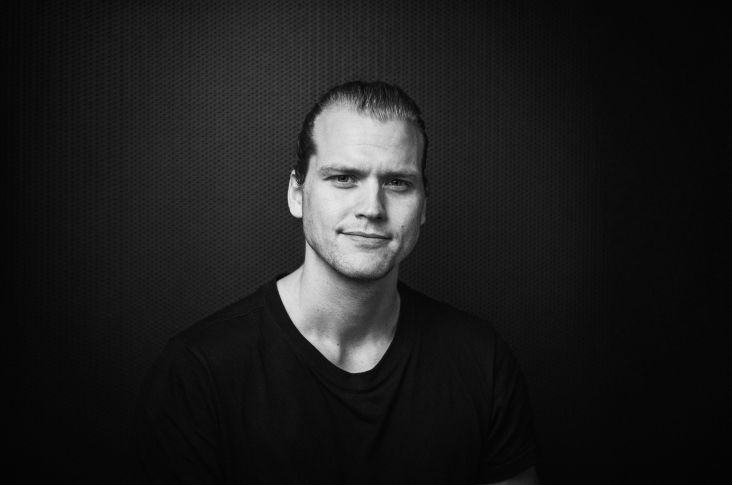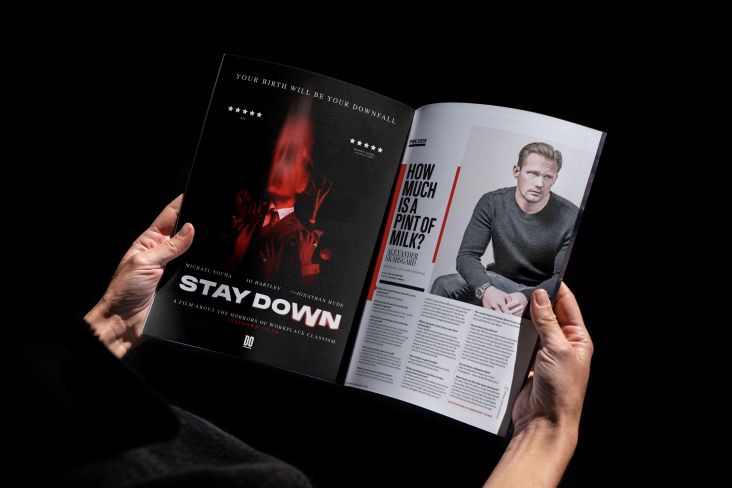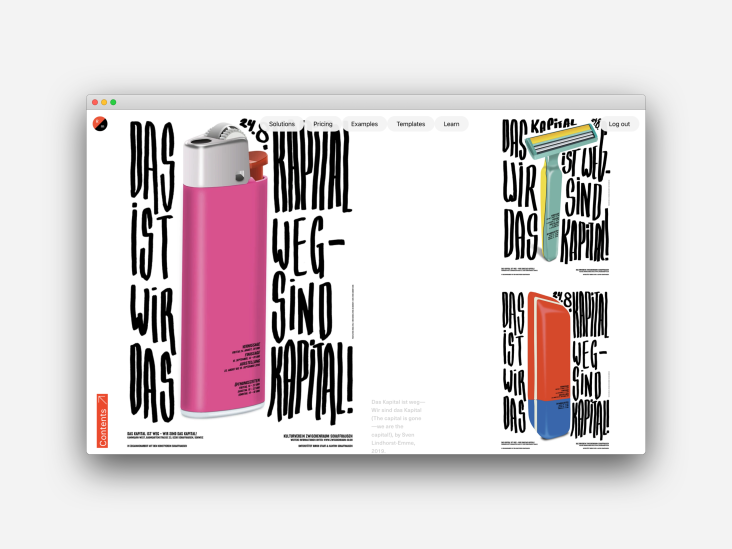
Image licensed via Adobe Stock
Whether you're new to the creative profession or a seasoned veteran, we all like to project an image of self-confidence. But behind the mask, it can be a different story.
Even the most successful people are often plagued by self-doubt, and right now, more of us are suffering than ever.
Despite lockdowns becoming a distant memory, some of us are still finding it difficult to leave the house. Many are experiencing some form of PTSD following our experiences during the pandemic. The news is full of doom and gloom, from war and suffering to the collapse of financial markets and the prospect of winter blackouts. Plus, with the cost of living spiralling, even the feeling of stability you might have had from a steady income is rapidly vanishing.
So it's no surprise, so many creatives are lacking confidence and suffering from imposter syndrome right now. But there are practical steps you can take to get your mojo back. This article offers some advice on regaining your belief in yourself.
You may notice that many of these tips involve doing things you're not comfortable with… precisely because you lack confidence. But that's not a mistake. It's precisely by facing your fears, and going headlong into something you dread, that you gain confidence. Once you've wrapped your head around that, it's time to summon the courage and go for it. We promise you; you won't regret it.
1. Get out of the house
Emails and instant messaging systems like Slack are brilliant for productivity, letting us spend more time creating and less time on endless, pointless meetings. But if all your communication is done this way, it can often lead to paranoia and low self-esteem.
Why? Because text lacks all the empathy and personal connection that comes from real, physical contact and conversation. It means that often the most innocuous sentence can be misinterpreted, whether or not it's accompanied by cartoon emojis.
How often have you fretted over a line in a boss, client or colleague's email and wondered, "What did they mean by that?" We've all been there. And when you start getting stressed out this way, it's a sure sign that you need to be with people more.
That's why even if you usually work from home, it's good to get to an office or co-working space regularly, to immerse yourself in real-world chat and banter.
Aside from avoiding misunderstandings, this will also stop you from imagining that everyone is doing much better than you. That's easy to think when you see people showing off their successes on social media. It's much less likely when you're sitting next to said person, and they're swearing under their breath at their computer, client or the world in general!
For more on making human connections as a freelancer, read our article How to avoid feeling lonely in an age of remote working.
2. Speak in public
Are you suffering from low self-esteem? Then volunteer to talk at a creative event. On the face of it, that advice might sound a little weird and counterintuitive. But it's actually one of the best ways to build confidence, as countless people who've tried it will attest to.
Remember, you don't have to be the most polished after-dinner speaker, nor the world's greatest and feted practioner. You just need an exciting story and some interesting work to show fellow creatives. And we all have those if we dig deep enough.
Of course, you must work on making your talk engaging, interesting, and adequately paced to fit the time slot. Some eye-catching slides typically help, too – as can advanced practice runs in front of friends, family or sympathetic colleagues.
In fact, if you follow this process, you'll already start growing in confidence as you realise you do have talent, you do have interesting things to say, and you are worth paying attention to.
When you finally give the talk, don't beat yourself up if you stumble over the odd word or occasionally lose your place: be honest and open with your audience, and they'll be on your side. Most of all, don't feel you have to project an image of supreme career perfection. Own up to your mistakes and failures and what you've learned from them. People will normally find that much more interesting and useful than someone bragging about how great they are.
Yes, it can be intimidating. But the result of giving a talk in public will be a huge boost to your confidence, not to mention growing your reputation and helping you network. For more tips, read our Guide to public speaking in 10 simple steps.
3. Remove people from your life who are holding you back
When your confidence gets crushed, it's often because people around you bring you down in big and small ways. So shifting your focus from those people, and gradually removing them from your life, is often the first step to regaining your belief in yourself.
In short, ditch anyone who saps your energy or leaves you feeling glum. Just do it kindly by slowly moving away from them rather than giving yourself a reputation as a "difficult person to work with".
That said, people causing you trouble on social media, particularly anonymous people that you don't otherwise know, may need to be handled differently. Unfollowing or blocking them is usually pain-free, but if you're really having issues, why not consider quitting social media altogether? After all, creatives survived before social media was invented, and many continue to do so. For advice on following in their footsteps, read our articles on how to quit social media and How to win more freelance clients when you've quit social media.
What if the people bringing you down are more immediate: colleagues, clients or employers, for example? Well, first consider how much you could limit your interactions with them without affecting your employment. But ultimately, if someone is making you feel truly awful, they're ruining your chances of future career happiness, and you need to cut the cord.
After all, with creative professionals in such demand right now, you'll always be able to find other people willing to pay you. It may take some time, but you'll get there in the end, and you won't be sorry you made the leap. For advice on how to go about it, follow our guide to how to dump a difficult client, or if you need to leave your job, read our step-by-step guide to going freelance.
The flip side of this, of course, is to build up a network of fellow creatives who can help build you up, support you and make you feel great about your life. That might sound like a tall order, but in our experience, the creative world is full of friendly, supportive people who are open to chatting about each others' struggles. You just have to get out there – both online and in person – and start chatting; the rest will follow.
Courage may be needed, perhaps a lot of courage. But your life, career and ability to create the things you love will improve as a result, so ultimately, it will be worth it.
4. Fake it until you make it
We've all heard the phrase 'Fake it till you make it'. And for good reason. Because, in truth, that's the path pretty much every creative follows.
No one is born a genius: everyone has to work at it. 'Talent' isn't something that you develop over time but something you have to develop through constant application. But while you're doing so, it's important to act the part. That doesn't mean lying about your abilities, but it does mean making the most of what you have achieved. It means presenting your work in the best light. It means walking tall, speaking confidently, dressing well, and acting the part of someone who's going places.
In other words, faking it till you make it isn't about being deceitful. It's simply about flying the flag for your ambition and ensuring people see it. Do that consistently enough, and people will respond accordingly.
5. Read these books
A good book can often be all you need to change your mindset in a positive way. And if you're seeking to regain your confidence, we recommend Feel The Fear And Do It Anyway by Susan Jeffers. Rather than woolly motivational jargon, it features simple but profound advice, practical insights, and tools that will improve your ability to handle any situation. It's not specifically focused on creativity, but what it will teach you will help you become more confident as a person generally, which will help you in your career just as much as anything else.
If you're looking for a shorter tome, the The Little Book Of Confidence by the same author is a handy pocket-sized version, offering the same insights in a more condensed form. Featuring 159 pages of positive affirmations, this a good book for dipping in and out of, and it is easy to carry around with you too.
Many people have found CBT (Cognitive Behavioral Techniques) to be very helpful in improving their confidence levels. Overcoming Low Self-Esteem: A Self-Help Guide by Dr Melanie Fennell is a great place to start. This best-selling self-help book will help you to understand your low self-esteem and break out of the vicious circle of distress, unhelpful behaviour and self-destructive thinking. Using practical CBT techniques will help you learn the art of self-acceptance and transform your sense of self for the better.
Another great read, this time focused on business and public speaking, is How To Develop Self-Confidence by Dale Carnegie. Drawing on the author's years of experience as a business trainer, it shows you how to overcome the natural fear of public speaking, become a successful speaker and even learn to enjoy it.
For more reading ideas, see our list of 10 books to build confidence.
Conclusion
When you have no confidence, it can feel like nothing you do matters, and it can be incredibly difficult to motivate yourself to start creating. But it doesn't need to be like this.
Just as you can build up your physical strength through exercise and eating well, you can gradually raise your confidence levels by following the advice we've given above. It won't change your situation overnight, but you'll definitely be going in the right direction, and you'll find that, little by little, things will improve.
Yes, we realise the irony of advising you to build your self-esteem by doing things that only confident people are usually comfortable doing. And yes, we know that for some people, even setting foot outside the door can be terrifying, let alone networking with strangers or giving a talk at a creative event. So courage may be needed, perhaps a lot of courage. But your life, career and ability to create the things you love will improve as a result, so ultimately, it will be very much worth it.




 by Tüpokompanii](https://www.creativeboom.com/upload/articles/58/58684538770fb5b428dc1882f7a732f153500153_732.jpg)

 using <a href="https://www.ohnotype.co/fonts/obviously" target="_blank">Obviously</a> by Oh No Type Co., Art Director, Brand & Creative—Spotify](https://www.creativeboom.com/upload/articles/6e/6ed31eddc26fa563f213fc76d6993dab9231ffe4_732.jpg)

















